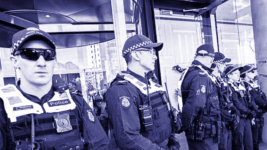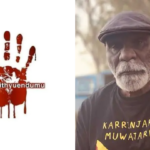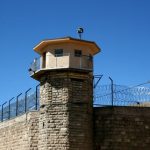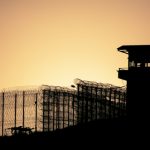Pseudo-Cops Enforcing Bylaws Are Starting to Appear on Australian Streets

City of Melbourne council has embarked upon a law enforcement experiment that involves security guards carrying out policing functions that on-the-beat officers usually perform to plug an inner city gap that the state government is considered to be failing to, and taken with the move to create “pseudo-cops” in the Northern Territory, this tends towards an emerging and concerning trend.
The $2 million Community Safety Officer program that Melbourne council determined to establish in June, will see eleven CSOs providing security in the Naarm-Melbourne CBD and it’s part of a broader $4.5 million council 2025-26 budget investment in security. This initiative evolved out of a denied request that Victoria police provide two officers to escort council staff on the street enforcing bylaws.
The Victorian Aboriginal Legal Service outlined in a 23 September post there is sector-wide concern about “these pseudo-cops patrolling the streets” and “intimidating some of our city’s most vulnerable populations”. VALS further set out that the CSO program is inherently racist due to the disproportionate number of First Nations people living on Naarm streets.
The legal service also considers the setting of pseudo-cops on the homeless to move them on when convenient is “akin to criminalising poverty”, and the initiative further evokes recent developments in the Northern Territory, which involve the Country Liberal government having passed laws that turn transport and housing inspectors into armed officers with quasi-policing powers.
For those living on Gadigal land in Sydney, pseudo-cops are not a thing. But NSW, Queensland, the NT and Victoria have all been cracking down on youth crime, while most of these jurisdictions have recently imposed wanding laws, with Victoria now looking to do the same.
So, Sydneysiders ought to be concerned about the prospect of the city following suit and deploying pseudo-cops to the cityscape to accompany preexisting drug dogs and strip searches.
Pseudo-cops patrol city streets
Melbourne council had requested that two VicPol officers work alongside its local law officers, who operate as council staff that patrol the local area enforcing council bylaws. The request for assistance was in response to 37 incidents of violence recorded against these officers over the last two years.
But as the request was denied, the council then embarked upon a six week trial of security guards being employed to patrol the CBD and surrounding areas.
Two security guards were hired to commence operating on 7 March. Melbourne lord mayor Nick Reece was photographed standing between them in one of the city’s iconic laneways, and as VALS note somewhat disturbingly, both of the guards were wearing “thin blue line” patches, which is the symbol often worn by police across the west, who adhere to far-right white supremacist ideals.
The trial of the security guards was considered a success and it was extended into the present, while the 17 June 2025 Future Melbourne Committee meeting saw councillors vote to establish 11 community safety officers, charged with patrolling the local government area to deal with antisocial behaviour, including drinking and drugtaking, along with “aggressive begging”.
The “Reece Police” are further going to be equipped with handcuffs and the power to arrest.
The Homeless Persons Union has launched a petition calling on the City of Melbourne to drop the plan to roll out security guards to accompany its local law officers, as their imposition will most predominately result in the homeless population of Naarm being targeted, so that vulnerable people with nowhere else to go will be considered a public nuisance.
Policing into the future
The shift to pseudo-policing to fill an apparent growing void of public space without any law enforcement is not confined to Melbourne city, as the NT government has just passed laws to establish Police Public Safety Officers (PPSOs).
Passed on 12 September, the Police Administration Amendment (Police Public Safety Officers) Bill 2025 has amended the Police Administration Act 1978 (NT) to facilitate the creation of the new pseudo-cops.
“This bill is the first tranche of changes to operationalise this government’s commitment to a significant law-and-order reform that will target antisocial behaviour in public places, on our transport network and around public housing,” said NT chief minister Lia Finocchiaro in her reading speech on the bill in NT parliament.
“This government is revolutionising frontline responses to antisocial behaviour by consolidating what are currently separate government frontline resources into one centralised workforce,” continued the Territory’s chief minister, who also happens to be the NT police minister. “This workforce will be a brand-new rank of police officer called police public safety officers.”
The bill that passed on the 12 September 2025 consolidates various safety officer roles into one highly visible public safety force. This includes liquor inspectors, public housing officers, transit officers and private security, Finocchiaro told the chamber. The current bill is the first step, as it establishes a rank in the NT Police Force for these officers who will combat antisocial behaviour.
The NT police minister further elaborated that the establishment of public safety officers is a move towards the future of policing, as the community will be “best served by having both experienced and highly trained police focused on criminal investigations, complemented by another highly trained cohort of police engaged in policing support and antisocial behaviour responses”.
The second bill to establish this new direction in policing is soon to be introduced with more substantive reforms. But a key concern about safety officers on transport, around housing estates and patrolling public shopping malls is that they’re set to be armed with guns. And this deployment of armed safety officers in public is happening amongst a broader Territory law-and-order drive.
Brave new world
Sydney city is infamous for the NSW police use of sniffer dogs in public places, especially around train stations, and at events, where their presence can trigger drug fatalities, while over the last decade, these invasive procedures have increasingly been accompanied by strip searches to the point that officers are known to use screens at Central Railway Station to facilitate quick civilian strip downs.
Melbourne council is not alone in having hired security guards to patrol Victorian public streets, as Maribyrnong council became the third in the Greater Melbourne region to hire guards in July. Two guards are being trialled 24 hours a day for six months, while Wyndham City council, in the city’s outer west on Bunurong and Wadawurrung land, has also determined to run a 12 month trial.
The City of Melbourne is further investing $2.1 million dollars, as part of its $4.5 million dollar city security package, to expand the Safe City Camera Program, so an additional 100 CCTV cameras are set to be installed to surveil the city landscape. The council voted in May 2025 to develop a report on upgrading 280 cameras with facial recognition and AI technology to detect crime.
These prospects were discussed at the Future Melbourne Committee meeting in May, with the suggested use of the upgraded cameras being applied to stop instances of public nuisance and property damage. The Melbourne mayor as well raised computer vision at the meet, as it can be used to track drivers’ vehicle number plates and in the detection of abandoned shopping trolleys.
The most disturbing aspect to these developments is governments and councils are implementing less professional law enforcement officers and policing methods, which will likely involve heightened officer prejudice, along with more dangerous policing outcomes, while the increasing use of highly flawed facial recognition technology will result in the discriminatory policing of minority groups.
“This is deeply concerning and lacks any evidence base for its impact on community safety,” VALS said in respect of the prospect of racially biased CCTV facial recognition technology operating across Naarm-Melbourne.
“Many international studies and reports raise the alarm for racial profiling and disproportionate impact on people of colour, when security cameras use facial recognition.”







